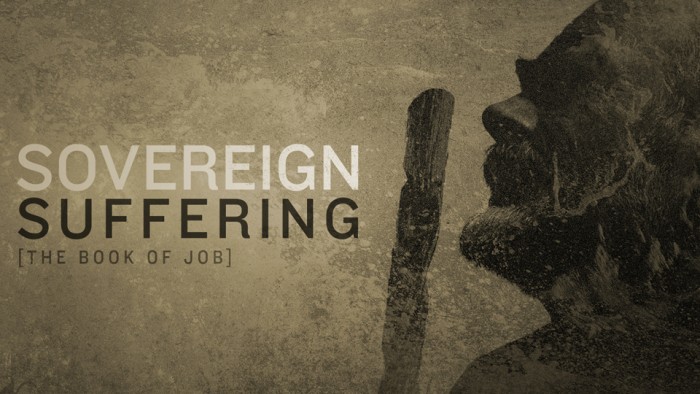What do we learn from this first interchange between Job and Eliphaz in Job 4-7?
Epliphaz said, “Innocent people don’t suffer (4:7). Therefore, Job you must be guilty of something. Be sensible, be humble. Despise not God’s discipline.” To which Job responds, “Oh, that God will give me death (6:8-9)! I am just a meaningless string floating in the universe and I wish God would take his sovereign scissors and cut me off. And why won’t my friends give me comfort (6:14)? Why have I become such a burden to God (7:20)? If I have sinned why won’t He just forgive me and restore me?”
One thing we see this conversation is that there are two ordinary ways in which humanity ordinarily speaks in suffering.
SPEAKING IN SUFFERING
You can speak in suffering with the language of logic. Eliphaz looks at Job, looks at the world, and shows, through his counsel, that logic rules everything in his mind. Logic is not a wrong in and of itself, but it can’t live in a straightjacket. Eliphaz is like a person who goes into a homeless shelter and automatically assumes everyone in attendance has deserved the hardship of homelessness. So there’s the language of logic and then there’s . . .
You can speak in suffering with the language of lament. Job is once again showing us that we must have a place in our lives for lament, for sorrow and weeping at pain. Job doesn’t remove logic from the equation, instead he displays what logical lamentation looks like. He knows he’s done nothing wrong and so cries, “Oh God, why? Why this anguish? Take it from me!”
When was the last time you sat down next to someone in the midst of suffering? What words dominated your counsel? Straightjacket logic or comforting lament?
Two Saturdays ago, after gathered worship, Emily and I drove up to Breckenridge, Colorado. Driving through the night was best for a variety of different reasons, but it meant that some of the scenic views were out of view in the darkness of the night. So, as we drove through the day on the way back I kept thinking, “Oh wow, this is incredible, I didn’t see this sight on the way up!”
And we can fall into a similar experience with Job. This book is preeminently about how a sovereign God reigns over the suffering of His people. Our journey through Job can be like a drive in the night, one that misses the beauties of God. Or we can drive through it with the Spirit’s light and find incredible riches for our feasting. So as we begin to close, let me highlight three truths, from our text, about our great God.
BEHOLD OUR GREAT GOD
God’s wrath is unbearable. In 6:4 Job says,
For the arrows of the Almighty are in me;
my spirit drinks their poison;
the terrors of God are arrayed against me.
Job believes that he is suffering under the wrathful judgment of God and he can’t take it. He is suffering and cries out in anguish for God to finish him off! Oh, how much more terrifying is the wrath of God which falls for eternity on those apart from Christ. What will you do with this wrath of God? Disagree with it? Apologize for it? Or flee to the only refuge from it – the Lord Jesus?
God’s ways are unsearchable. God is doing something through this suffering that Job, and none of his friends, can understand. His thoughts are higher than their thoughts, ways beyond their understanding. The Lord moves in mysterious ways, His wonders to perform. Do you have a biblical understanding of a God so great and glorious, beyond comparison, that it’s impossible for your finite mind to comprehend his infinitely wise ways? If not, the God you praise is smaller than the God of Scripture.
God’s worth is invaluable. Lest we think Job’s desire for death is merely the removal of pain, notice what Job says in 6:10,
This (death) would be my comfort;
I would even exult in pain unsparing,
for I have not denied the words of the Holy One.
“Like a prisoner undergoing torture and would rather die than eventually break, so does Job long to die without betraying his faith in the goodness of God.”1 I heard a preacher recently says, “A church that would rather die than disobey is unstoppable.” And I think that’s absolutely right and captures something of the power of Job. Eliphaz says, “Innocent people don’t suffer.” Job knows he suffers innocently and is desperate, even if it means dying, to magnify the unending worth of God. Will you magnify God even if you suffer innocently?
- Ash, 123 ↩

